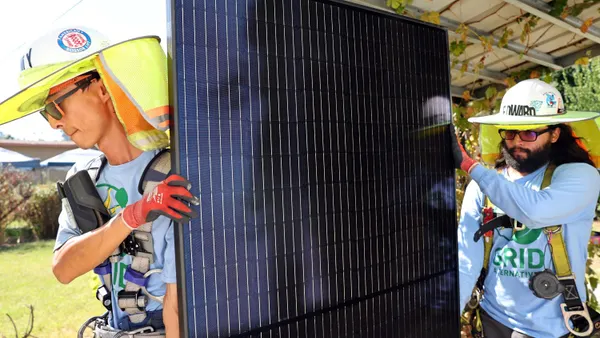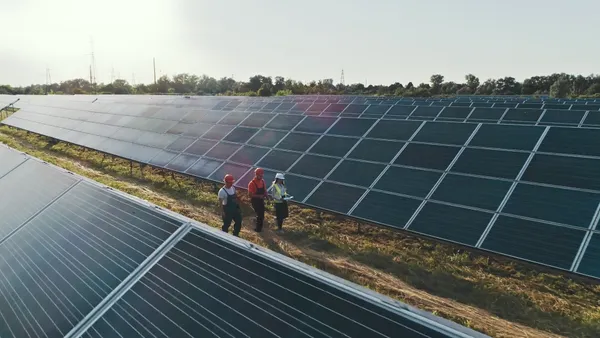Dive Brief:
- The New Jersey Board of Public Utilities (BPU) last week launched a review of the state's solar market, directing staff to solicit input from stakeholders and hold public hearings across the Garden State.
- New Jersey is fourth in the nation for installed solar capacity. The state has more than 2.25 GW of capacity at 80,000 projects.
- The market review will examine a host of issues, including the cost differential between residential and utility-scale solar projects and the potential for designing different incentives for grid projects than those for residential and business customers.
Dive Insight:
The last two decades have brought a host of changes to New Jersey's solar market, elevating it from a small research-based sector to a proven resource. Now, officials say the economics and the financial models
of the industry have also changed, as installers have become more refined.
“New Jersey’s solar program has been highly successful,” BPU President Richard Mroz said in a statement issued by the board. “We are fourth in the nation in the cumulative amount of installed solar capacity."
Among the topics that may be considered in the solar proceeding are the cost differentials of different types of solar installations, and the potential for designing different incentives for grid projects than those for residential and business customers "to minimize or eliminate the impact of grid projects on the residential and commercial solar marketplace."
Staff will also review: rate impacts on residential and business customers; environmental benefits of solar generation by reducing the need for power produced by traditional sources of electricity; the impacts that ground mounted grid supply and large net metered installations can have on local ecosystem benefits of open space; and land use implications.
The board directed staff to "scrutinize the entire suite of solar incentive policies for cost effectiveness, equity and efficiency," according to the BPU statement. It said the current state of the renewable portfolio standard RPS is a concern given the "steady, sustained rate" of new capacity entering the Solar Renewable Energy Credit program.
A bill designed to overhaul the state's Solar Renewable Energy Credit program was considered by lawmakers in the latest legislative session. It was passed by the Senate but got held up in the Assembly.














